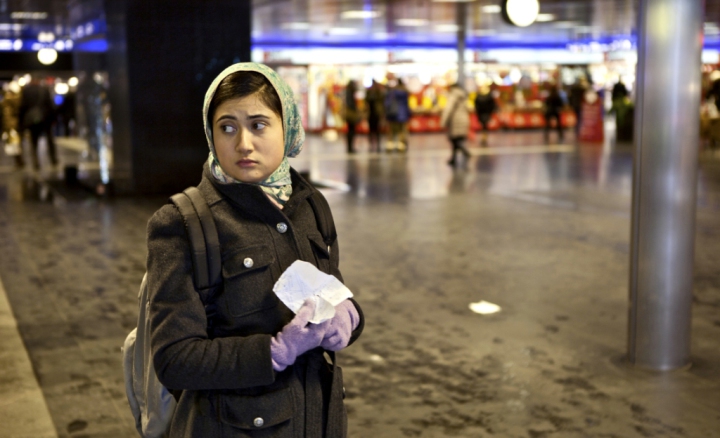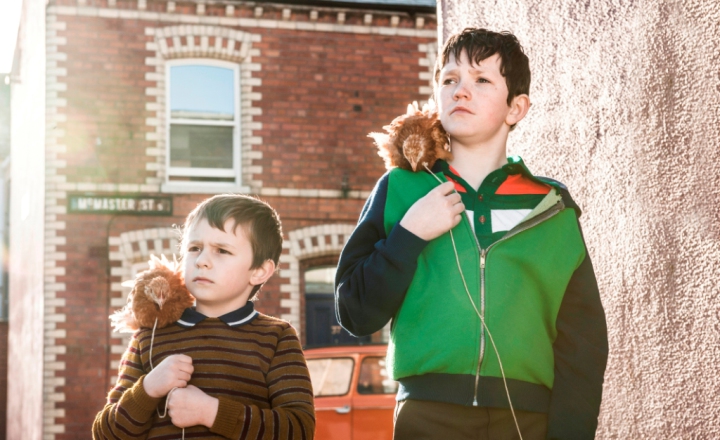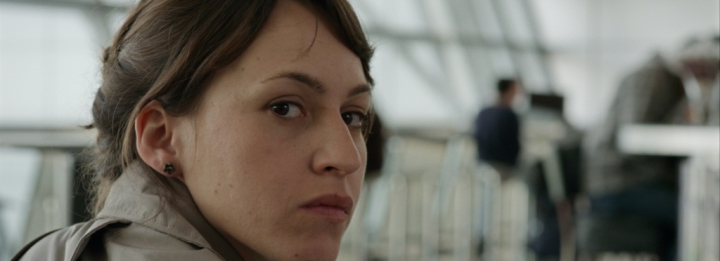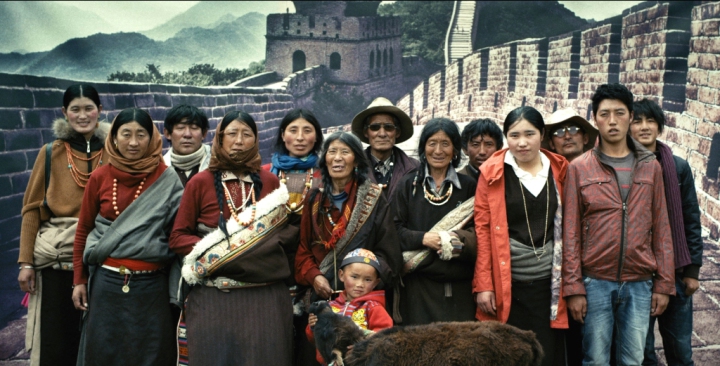Normally I have — or at least think I have — a pretty good idea of what is likely to win the Oscar in this category, but this year I could see it going to any one of the five — and for completely different reasons in each case. The really intriguing thing about this is that all those reasons strike me as valid. I will say that two seem to be the longer shots.
Parvaneh (Director: Talkhon Hamzavi) — 25 minutes/Switzerland/Dari and German.
This Swiss film — which according to the IMDb has actually been around since 2012 — strikes me as one of those longer shots. Its greatest drawbacks are length — at 25 minutes the story is stretched — and a certain predictability. The latter may not be a bad thing, since last year’s winner, Helium, was nothing if not predictable. In its favor, this story about a girl from Afghanistan securing the help of a punkish Swiss girl to send a money order to an ailing relative back home has a strong crowd-pleaser component, especially once the arrangement turns into an all-night friendship. The technical side is first-rate, and the production values are surprisingly high.
Boogaloo and Graham (Director: Michael Lennox) — 14 minutes/UK/English.
Boogaloo and Graham comes from Northern Ireland, and while it is set in the 1970s, it is not about the “Troubles,” though the presence of the British military does color the film. Instead, this is a thoroughly charming film about two boys whose irresponsible father (Martin McCann) gives them each a pet chick — much to the consternation of their mother (Charlene McKenna). As baby chicks are wont to do, these grow into chickens, which the boys squire around on strings — taking pride in the fact that they have such unusual pets. Unfortunately, a family development arises that puts the pets in peril. Altogether, this is a gentle, sweet film that turns into something considerably deeper — with the kind of twist that makes you rethink much of what you’ve assumed. I suspect this has a good shot — and I’d be happy about that.
Aya (Directors: Oded Binnun and Mihal Brezis) — 39 minutes/Israel and France/English, Hebrew, Danish.
This Israeli entry has also been around since 2012 — the old technical definition of a feature being any film longer than 34 minutes would rule it out, but the Academy currently considers a feature to be any film under 40 minutes, so this squeaks by. (It appears to have been shown as a stand-alone feature in Israel.) From a technical standpoint, Aya is probably the most accomplished of the entries. In fact, it contains one use of moving camera that I’m still puzzling over how it was done. On the other hand, the film requires the viewer to accept a basic premise that is hard to swallow at first, becomes maddeningly drawn-out and only then starts to make sense. That might be a problem. The idea is that a young Israeli woman, Aya (Sarah Adler), waiting for someone at the airport is asked to hold a sign for a professional driver waiting on a passenger. While he’s away, the passenger, a Danish music critic named Overby (Ulrich Thomsen), arrives and assumes Aya is his driver — and she does nothing to disabuse him of the notion. This is what is hard to buy at first. It does finally add up and it’s very well done, but it seems to me to be the longest shot of all.
The Phone Call (Director: Mat Kirkby) — 21 minutes/UK/English.
I have a feeling that this is one of the more likely winners — thanks to a heavily emotional story and splendid performances from Sally Hawkins and Jim Broadbent (even though we only hear his voice). Despite the presence of two other performers (including a brief bit by Prunella Scales as Broadbent’s late wife), this is essentially a two character piece. Heather (Hawkins) is a worker at a helpline call center who receives a call from Stan (Broadbent), a suicidally depressed man, who has spent two years grieving over his wife. The bulk of the film consists of their telephone conversation — and it is heart-wrenching. Moving without being depressing, it would be a shoo-in any other year. This year I’m not going that far.
Butter Lamp (La Lampe Au Beurre De Yak) (Director: Wei Hu) — 15 minutes/France and China/Tibetan.
Easily the least viewer-friendly of the lot is the Chinese-French co-production Butter Lamp. It’s a film that never even reveals exactly what the point of the whole thing is. It merely offers a situation — and a very static one at that — involving a photographer and his assistant (who are barely glimpsed) as they pose Tibetan villagers in front of elaborate scenic backdrops of various locations. It’s all from the angle of the photographer’s camera, and it’s never clear why these photos are being taken. It is quietly humorous, but it’s hard to say that it actually goes anywhere. Then again, I suspect it doesn’t want to — and it has a strange appeal. Its exotic impenetrability may or may not be a point in its favor as a winner, but it’s certainly worth a look.









I also thought Butter Lamp didn’t have much of a point until I saw the final scene – which got me thinking of last year’s controversy over the new rail line through Tibet, and the native people’s worry about a loss of their local culture.